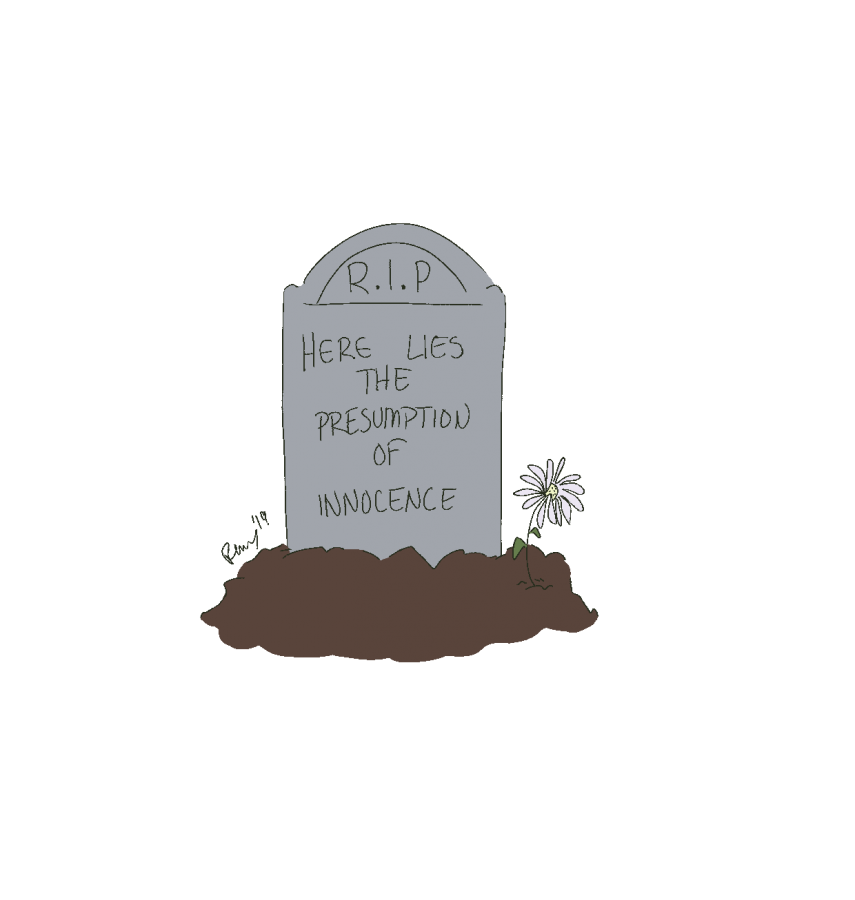OP-ED: Presumed Guilty
December 11, 2019
Our country is facing an epidemic. It is one that no vaccine can prevent, and that no antidote can cure. The racial bias that lives within our nation has infected our criminal justice system, all but killing the idea that one is “presumed innocent until proven guilty.” It has been replaced by the viral spread of the idea that instead law enforcement should shoot first and ask questions later. The ever-growing stories of brutality where the excessive actions don’t seem warranted against people of color appear to be on the rise.
On October 28, a group of NYPD officers flooded a packed train car–with guns drawn–and beat and tackled 19-year-old Adrian Napier to the ground. After the vicious beating, Napier was arrested. The crime: fare evasion. His crime was fare evasion. Napier was accused of jumping a turnstile — a petty crime worth $2.75 (or the equivalent of two packs of gum). The lives of Napier and the dozens of commuters riding the subway were put at risk for the cost of two packs of gum. Napier didn’t even pose a threat to the NYPD when he was arrested; he was seated calmly, unarmed, with his hands in the air. And yet, he was beaten to the ground, and the group of officers were not even reprimanded for their behavior and actions.
To get into specifics, 94 percent of those jailed for turnstile hopping were people of color according to NYPD data. Further, after being stopped by the police, a black person was greater than four times more likely to be arrested for turnstile hopping than a white person.
In 2014, police approached Eric Garner on the street on the suspicion–emphasis on the word “suspicion”– that he was selling individual cigarettes without tax stamps. After Garner denied the accusation, the NYPD attempted to arrest him, and Officer Daniel Pantaleo put Garner in a choke hold and wrestled him to the ground. Despite Garner screaming, “I can’t breathe,” Pantaleo continued choking Garner until he lost consciousness which investigators said led to his eventual death. Garner lost his life on the suspicion that he was selling untaxed cigarettes.What happened to the presumption of innocence?
On October 16, 28-year-old Atatiana Jefferson of Fort Worth was inside her home playing video games with her nephew when police, who were called to the residence by a neighbor who saw an open door, shot and killed her. They killed a woman in her own home without even so much as identifying themselves, or giving her a chance to speak.
Are these examples just aberrations, the exceptions, rather than the rule, whose actions gain attention merely from the media attention they’ve received? A study by Rutgers University doesn’t corroborate that theory; it showed that young black men in the U.S. die from police gunfire two and a half times more often than their white counterparts. So, one needs to ask, “Why the extreme paranoia aimed at minority suspects?”
Paranoia is just the symptom; the disease is systemic racism, one that delivers the message that people of darker skins are to be feared, convicted and executed without due process. Like other deadly diseases that have been eliminated, this one too can be obliterated. But to do so, we must first recognize that the illness exists.




